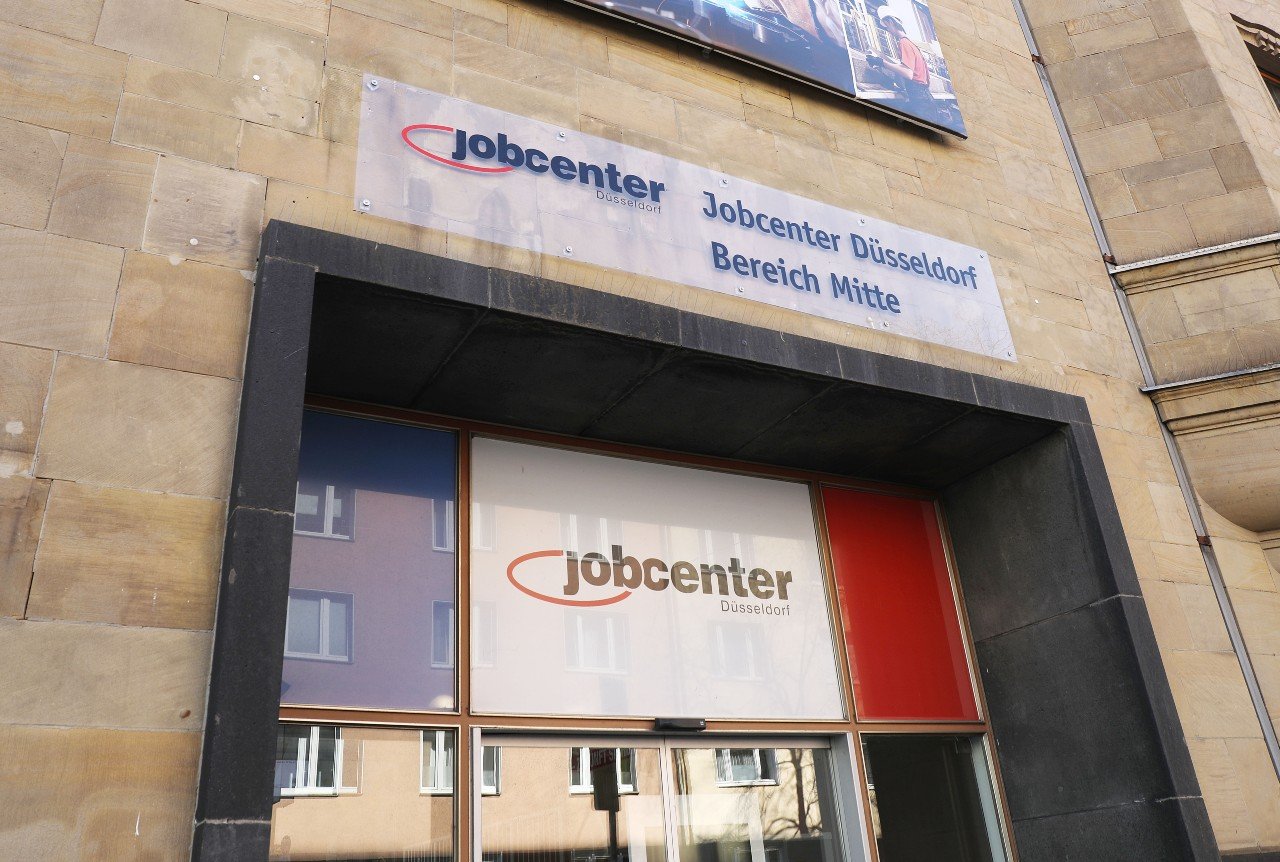When it comes to working life, Germany can sometimes feel a little old-fashioned: digitalisation is making painfully slow progress, the country doesn’t offer any special visas for remote workers, and many social perks are linked to having a full-time job.
That said, things are certainly changing bit by bit. The number of people who are self-employed in the Bundesrepublik is growing year on year, and since the pandemic an increasing number of people also enjoy a more flexible working life.
More and more, companies are making remote working a reality, with many employees spending at least a few days a week away from the office.
This comes with a huge number of benefits, including a better work-life balance, but it also comes with added expenses, whether it’s for electricity at home, rent for a co-working space or coffee in your favourite café. That means that picking the right location to work in can make a huge difference to your wallet.
In a new study, shopping voucher site Savoo looked at the price of things like a cappuccino, general living costs, public transport, a one-room apartment in the city centre, internet costs and the rent for a hot desk in a co-working space.
READ ALSO: EXPLAINED: How to get a freelance visa for Germany from outside the EU
Here are the ten German cities that emerged as ideal locations for remote workers.
Hof
With a combined outlay of just €1,300 per month for living expenses and remote working, the northeastern Bavarian city of Hof is the most affordable place for hybrid workers to be based.
Renting a small apartment in this quiet, green town will set you back just €330 per month, while desk rental is a highly affordable €154 per month on average. Coffee lovers can also get their daily caffeine fix for just €2.17 on average, while general living costs come in at just €718 per month.
Hagen
If being close to bigger cities in a state with a high foreigner population is more your thing, the North-Rhine Westphalian town of Hagen could be the ideal location.
While the city itself is relatively small, it’s located just a stone’s throw away from the major post-industrial hubs of Dortmund, Wuppertal and Düsseldorf. What’s more, Savoo puts the monthly costs for remote or hybrid workers at just €1,430 per month.
That includes a one-room city centre flat for €400 per month, hot desk rental at €126 per month and general living costs of €794 per month.
Aachen
Nestled close to the Dutch and Belgian borders, the quintessentially European city of Aachen is another prime destination for hybrid workers.
Not only is it a beautiful city steeped in history, but it has also stayed relatively affordable over the years, despite its popularity and rapidly growing economy.

Here, a one-room flat in the city centre will set you back around €564 on average, while general living expenses come in at around €825 per month, and you can order a cappuccino for less than three euros (€2.92). At an average of €241, hot desks here are a bit pricier than in Hagen and Hof, but can still fit fairly comfortably into the household budget. All in all, hybrid working here costs around €1,742 on average.
READ ALSO: The German university towns where property prices are going up (and down)
Jena
Thuringia’s second city may not be the first place most foreigners consider living in in Germany, but that doesn’t mean it doesn’t have a lot to offer. Surrounded by rolling hills and home to botanical gardens and a planetarium, Jena is a quirky city with a lively student population, and it was even once the home of the poet Friedrich Schiller. It also offers a great deal for remote workers.
Living here and working remotely two days a week costs around €1,746, largely due to affordable rents of around €528 on average for a one-room flat in the city centre and reasonable general living costs of €868 per month. At around €45 per month, internet here is fairly pricy, but with the cost of a one-way transport ticket costing just €2.20 and a cappuccino coming in around €2.81, there are plenty of ways to save money throughout the month.
Dresden
Despite being the 12th largest city in the country, Dresden is one of the few major German cities to still be relatively affordable. In addition, it offers a rich and vibrant cultural scene and access to Saxony’s mountainous great outdoors.
According to Savoo’s study, you can expect to pay around €611 per month to live in your own one-room flat in the city centre, and general living costs remain under the €1,000 mark at €981 per month. Expect slightly higher prices for your daily dose of caffeine, with cappuccinos costing around €3.20 on average, but at around €41.80 per month internet costs are some of the lowest in the country.
Leipzig
Leipzig – or ‘hypezig’ as it’s come to be known – is a lively town with a hip, creative image that has become a magnet for young creative types in recent years.

Though the cost of living has risen with its popularity, it continues to be one of the most affordable places in the country to live and work – especially if you work remotely.
Here, you can rent a desk for just €233 a month, bag yourself a city centre flat for just €622 and enjoy a coffee in your favourite hipster café for just €3.07. General living costs come in at €1,000, bringing the grand total up to €1,970 per month to live and work in Saxony’s second most populous city.
READ ALSO: 10 things you never knew about the German state of Saxony
Kassel
Located in the central German state of Hesse, Kassel is famed for its sprawling landscaped park – Bergpark Wilhelmshöhe – and its annual contemporary art festival, Documenta. With around 200,000 residents, it’s a pleasant mid-sized city, and it also offers affordable living for remote and hybrid workers.
According to Savoo’s calculations, €1,979 per month is enough to live comfortably in Kassel, budgeting €550 for a city centre apartment, around €971 for general living costs and €45 for Internet, among other daily expenses like coffees and transport.
The one expense that is on the higher end, however, is desk rental, with hot desks in the Hessian city costing an average of €371 per month.
READ ALSO: Travel in Germany: Discovering the fairytale trail of Kassel
Bielefeld
With more than a third (35 percent) of the population having a migration background, Bielefeld is a diverse and multi-cultural city with a rich industrial past – and it also happens to be home to one of Germany’s most well-renowned universities.
Located in North-Rhine Westphalia – not too far from Münster – it offers all the perks of city living at relatively affordable prices, making it ideal for remote and hybrid workers.
At €397 and €46.18 respectively, the costs of desk rental and internet here are relatively high, but the city makes up for it with reasonable rents of €570 in the inner city, general living costs of around €921 per month and affordable transport (€2.80 for a one-way ticket). That means that remote workers can get by on an average of €2,004 a month.
READ ALSO: Where do the majority of foreigners live in Frankfurt?
Dortmund
Another prominent North-Rhine Westphalian city, Dortmund is known largely for its football team, but it also holds the title of the most digitalised city in Germany thanks to its embrace of new technologies.

For remote workers, internet and hot desks are unfortunately fairly pricey (€46.11 and €361 respectively). However, rent for a small city-centre flat remains affordable at €605 per month, a cappuccino will set you back €3.15 and general living costs come in at just over €1,000. That means living and working in the post-industrial city is possible on around €2,098 per month.
Bremen
The tenth best German city for hybrid workers, according to Savoo, is the port city of Bremen. Like fellow city-state Hamburg, Bremen is a historic Hanseatic town with a rich sea-faring heritage and fierce pride in its local identity.
Its well-preserved, historic city centre adds to Bremen’s charms, and access to the nearby northern coast is a definite perk of living there. What’s more, it’s still a fairly affordable place for remote and hybrid workers to live, with estimated monthly outlays coming in at €2,102 for things like coffees, internet, desk rental and general living costs.
Expect rent for a small flat in the centre to come in at around €697 per month, with €300 extra for renting a desk, around €45.27 for internet and €1,028 for general expenses.





 Please whitelist us to continue reading.
Please whitelist us to continue reading.
Just curious. Why would you rent a desk instead of having one at home/